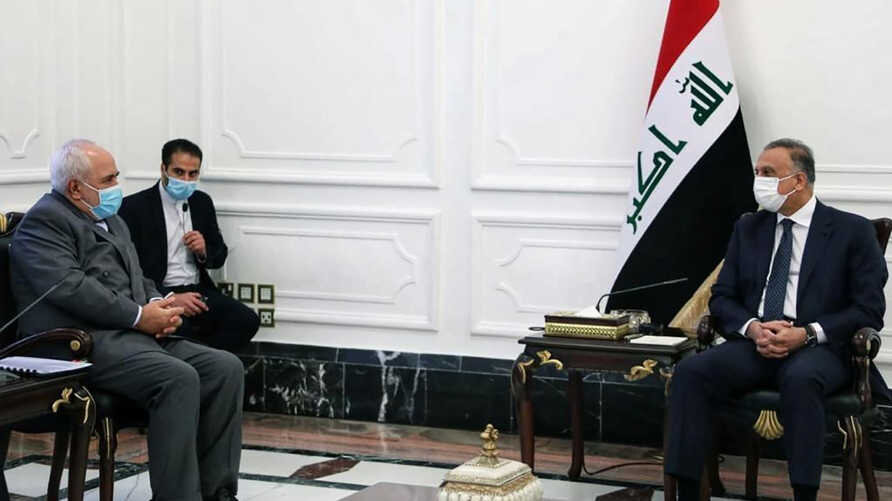Iraq seeks to revive its regional role through Iran

Iran is awaiting the first visit by Iraqi Prime Minister Mustafa al-Kadhimi to Tehran on Tuesday, a trip described as extremely important by analysts. The visit is expected to lead to positive results for the two countries.
Al- Kadhimi is making his first foreign trip in the light of Iraq’s economic crisis and the spread of the Coronavirus.
“Al- Kadhimi’s visit is extremely important and would reflect positively on the level of political and commercial relations between Tehran and Baghdad,” Hussein Al-Dirani, an Iraqi political analyst, tells the Tehran Times.
Reportedly, al- Kadhimi also plans to visit the United States in July or August for the second round of the Strategic Dialogue between Baghdad and Washington.
Before becoming prime minister and heading the Iraqi intelligence service, he was suggested as a mediator between Tehran and Washington. Due to his record, Iran and the U.S. may be interested in using al- Kadhimi’s strong relationship with both sides to reduce tensions.
On the other hand, al- Kadhimi is not reluctant to portray himself as a mediator and is interested in playing a role.
About a week ago, Iran’s central bank governor Abdul Nasser Hemmati met Kadhimi in Baghdad. During the meeting, the prime minister announced that Iraq would back Iran in difficult circumstances, stressing the necessity of resuming trade exchange between the two sides.
The trade exchange between the two neighboring countries has decreased significantly due to the spread of the coronavirus. It has led to economic and financial losses for Iraq amid the sharp fall in oil prices.
The prime minister is also going to visit Saudi Arabia, which has very important messages and results.
The prime minister is trying to present Iraq as an influential country due to its relations with the Sunni Arab countries as well as its and religious affinities with Iran, which can pave the way to reduce regional tensions.
Iraq’s foreign policy is based on two different identity factors. The first is a religious factor in view of the fact that a majority of Iraqis are Shia Muslims. Iraqi Shias mostly have a sympathetic view toward the Islamic Republic and always consider Iran as a great supporter of themselves. The historical experience of relations between the two nations also proves this.
The second factor is rooted in Iraq’s Arabic identity and its historical and geopolitical role in the Arab world. Some Arab countries, such as Saudi Arabia, are trying to use this factor as a trump card to strengthen Iraq’s influence and diminish Iran’s presence in the region.
However, Iraqi people never forget how Iran rushed to the help of its neighboring country in the most difficult security, economic, and political situations, regardless of their religious background.
In fact, Iran has contributed to Iraq’s stability and paid a heavy price for establishing security in Iraq during the last six years.
Whenever insecurity in the region spread due to the emergence of ISIS, Iran did its best to support Iraq by arming Kurdish forces and strengthening Hashd Al-Shaabi. However, Saudi Arabia was continuing to train and fund Takfiri groups in order to send them to Syria and Iraq.
That is why the U.S. and Saudi Arabia exercise pressure on the Iraqi government to reduce its relation with Iran and disband Hashad Al-Shaabi, the strongest popular force that succeeded to defeat ISIS.
Meanwhile, Al-Kadhimi is trying to reduce tensions in Iraq and establish balanced relations with regional and international powers through consolidating economic relationships with Iran and Saudi Arabia.
In this regard, Ali Shariati, a member of the Iranian Chamber of Commerce, tells the Tehran Times that Iraq’s economy is based on oil. He says Iraq relies on oil revenues for 95 percent of its income.
“After the oil crisis in the world, Iraq is facing a large budget deficit, and Kadhimi tries to compensate it quickly, because the economic condition has a direct impact on Iraq’s internal affairs, including its relationship with the Kurdistan region,” Shariati says.
He adds, “Al- Kadhimi is ready to work with Iran, Saudi Arabia, and any country that can provide money and facilities for his country to overcome this crisis.”
Nevertheless, the development of Iran-Iraq relations in various fields is another goal of the prime minister’s visit to Tehran, and it requires a roadmap in both countries.
Tehran-Baghdad relations should reach an acceptable level because Iran-Iraq relations go beyond normal international protocols.
Iran shares cultural and religious affinities with as well as 1,400-kilometer border, which play an irreplaceable role in the relations between the two countries.
Leave a Comment